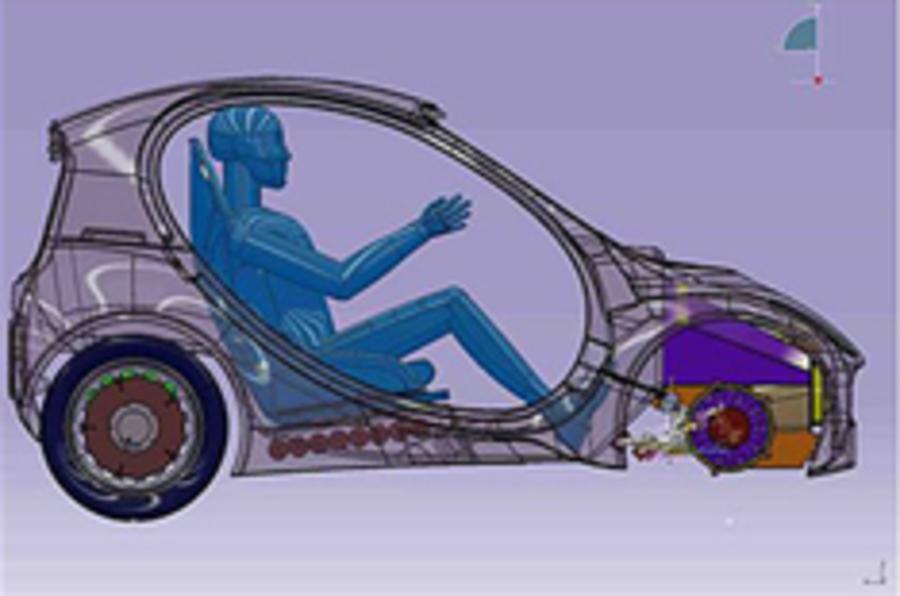A ground-breaking hydrogen-powered city car, which has been designed in Britain and financed by the grandson of Ferdinand Porsche, is to be unveiled next week.
Autocar can reveal that the Riversimple Urban Car will have a far smaller fuel cell than in current industry prototypes and thus needs less hydrogen to be stored on board and in fuelling stations.
The vehicle is no bigger than a Smart car, weighing just 350kg, and has been developed over three years by teams at Oxford and Cranfield universities.
It can reach 50mph and travel in excess of 200 miles, consuming the equivalent petrol energy of 300mpg in hydrogen.
Power comes from a 6kw fuel cell, which is tiny compared to the 100kw system powering the Honda Clarity.
It uses a composite body to keep the weight down and four electric motors on each wheel, which double as brakes and electricity generators.
There is a bank of ultracapacitors to store this electricity, which in turn provides most of the accelerating power, allowing for a small fuel cell.
Design for the Riversimple cars will be placed online in an 'open source' environment, meaning any small manufacturer can lease the design, better suiting local environments and allowing for the car to be built almost anywhere in the world.
The cars themselves will also be leased over 20 years, with fuelling included in the leasing cost, and the materials will be recycled at the end of each car’s lifespan.
Hugo Spowers, head of Riversimple, said: "Cars evolved under very different constraints to those of today, so we must move on. The sale of cars still rewards the maximisation of resource use – whereas we now accept that we must minimize resource use.”
Sebastian Piech, grandson of Ferdinand Porsche, along with other members of the Piech family, have backed the project so far.
“The Riversimple Urban Car represents a major step towards practical 21st century personal transport and towards the fulfilment of my great-grandfather’s ambitions for accessible personal transport but this time combining his other passions: light weight and high efficiency," said Piech.
Ten prototypes will initially be built and Riversimple hopes to team up with a city, possibly Cambridge or Peterborough, to roll out a pilot scheme.
The company says this will allow a hydrogen infrastructure to be developed alongside the introduction of the cars.





Add your comment